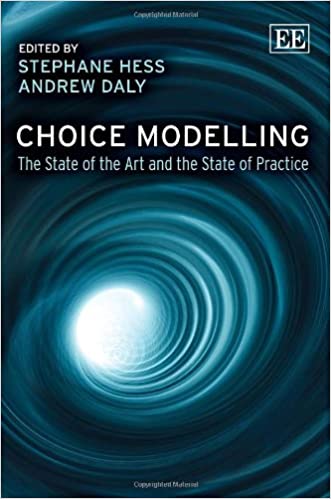
Choice modelling is a specialised area of micro-econometrics that develops and applies mathematical models that represent human decision making. Choice models are used extensively to understand current behaviour and predict future choices in the applied fields of the economic sciences, especially environmental, health, and transport economics. Other application areas include business and marketing. In addition to addressing questions of academic interest, choice modelling informs policy and strategy making in these applied economic disciplines.
This 2-day masterclass introduces students to choice models, discusses and contrasts the family of available model structures, and also talks about the data requirements, model estimation, and the use of models to produce outputs for policy. The course consists of a mix of theoretical lectures and case studies.
Stephane Hess is Professor of Choice Modelling and Director of the Choice Modelling Centre at The University of Leeds (UK). Stephane is a globally recognised leader in choice modelling with interests in behavioural models, travel behaviour, health choices, and decision making. His specific academic contributions include developing advanced choice models and empirical contributions across many fields. He is the editor of the Journal of Choice Modelling (the leading international, interdisciplinary journal in choice modelling), the chair of the International Choice Modelling Conference, and co-developer of Apollo (with David Palma, Leeds, UK), a widely used (open-source) estimation software for choice models.
This two-day masterclass introduces students to the fundamentals of choice modelling through a series of lectures. The masterclass will specifically introduce participants to the family of econometric models that are typically used in choice modelling – both in academic and applied projects. Examples are used throughout the masterclass with application areas including environmental, health, and transport economics.
The target audience includes both academic and applied researchers including university researchers and research students, and researchers and policymakers from government agencies and departments.
Day 1
- Session 1: Introduction to choice modelling and data for choice modelling (revealed and stated preferences).
- Session 2: Random utility theory and the Multinomial logit model (MNL).
- Session 3: Model estimation, specification testing, interpretation of MNL results and forecasting.
- Session 4:Models allowing for flexible error structures, including Nested and Cross-Nested Logit
Day 2
- Session 1: Allowing for deterministic heterogeneity in preferences
- Session 2: Random heterogeneity, including Mixed Logit and Latent Class; Advanced model estimation in Apollo
- Session 3: Advanced modelling topics, including Hybrid choice models and departures from the Random Utility framework
- Session 4: Choice modelling in practice, joint estimation on RP and SP data, and use of novel data sources.
This is a lecture-based masterclass delivered in person.
The masterclass consists of a series of lectures and interactive discussion sessions.
Participants should be willing to participate in these (facilitated) discussion sessions.
Participants should have some familiarity with linear and logistic regression.
There is no requirement for previous experience in choice modelling.
Hess, Stephane and Andrew Daly (eds.) (2014), Choice Modelling: The State-of-the-Art and the State-of-Practice. Cheltenham, UK; Northampton, MA: Edward Elgar Publishers.
Train, Kenneth (2009), Discrete Choice Methods with Simulation. Cambridge University Press, Cambridge MA.
